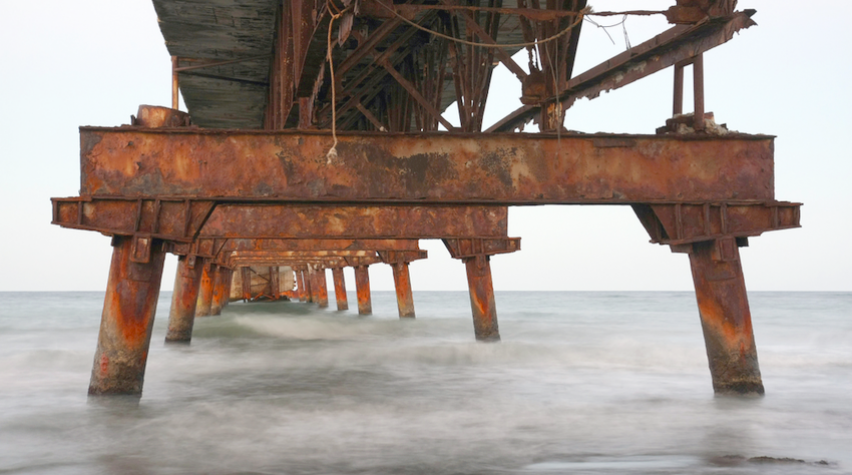
Researchers at Caltech recently announced that rust and saltwater could be used to generate electricity at a level of efficiency that could rivals or surpass solar cells.
Kinetic, not chemical
Researchers found that when saltwater flows over a thin film of rust, or iron oxide, electricity results. Unlike interactions between other metal compounds and saltwater, however, this reaction is not a chemical reaction, where one or more compounds are converted to new compounds. Here, the electricity is the product of an electrokinetic effect, where the kinetic energy of flowing saltwater results in electricity.
This same phenomenon has been observed with thin films of graphene, where levels of about 30% efficiency have been reached, compared to about 20% efficiency for the most advanced solar cells. But creating graphene films large enough to use is difficult. Not so for rust, however.
The researchers estimate that an area of 10 m2 could generate a few kilowatts per hour, or enough to power a typical US home.
How it works
The Caltech news release describes the mechanism responsible for the generation of electricity as complex and involving ion adsorption and desorption, but summarizes it this way: “The ions present in saltwater attract electrons in the iron beneath the layer of rust. As the saltwater flows, so do those ions, and through that attractive force, they drag the electrons in the iron along with them, generating an electrical current.”
Future uses
The head researcher says that various scenarios where there is already a saline solution present represent strong possibilities for this research, and he points to both the ocean and to the human body. Specifically, he points to the saltwater in the human body as a possible source for generating power for implants.
You can learn more about this work in the news release or in the published findings in Proceedings of the National Academy of Sciences.
2019 Bioenergy Sustainability Conference
The 2019 Bioenergy Sustainability Conference will be held in Nashville, TN on October 21-22, 2019. This conference will bring diverse researchers together to address information gaps and solutions to bioenergy sustainability challenges including land, water, climate, and socio-economic aspects. Learn more about this conference and submit an abstract.


